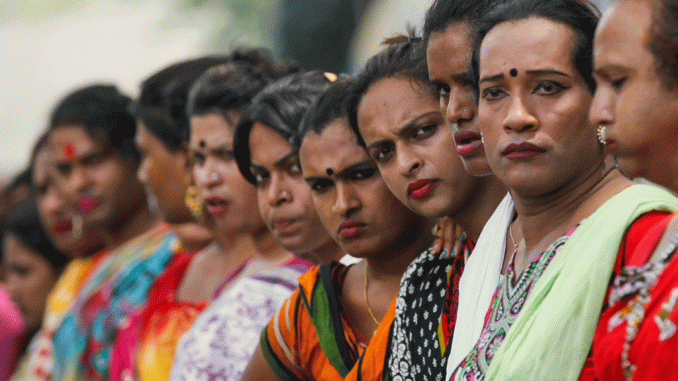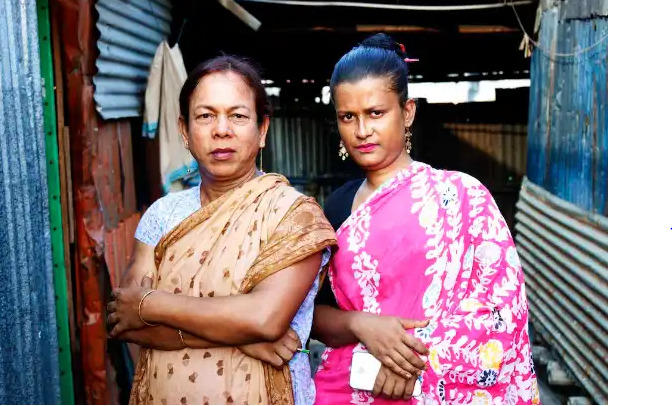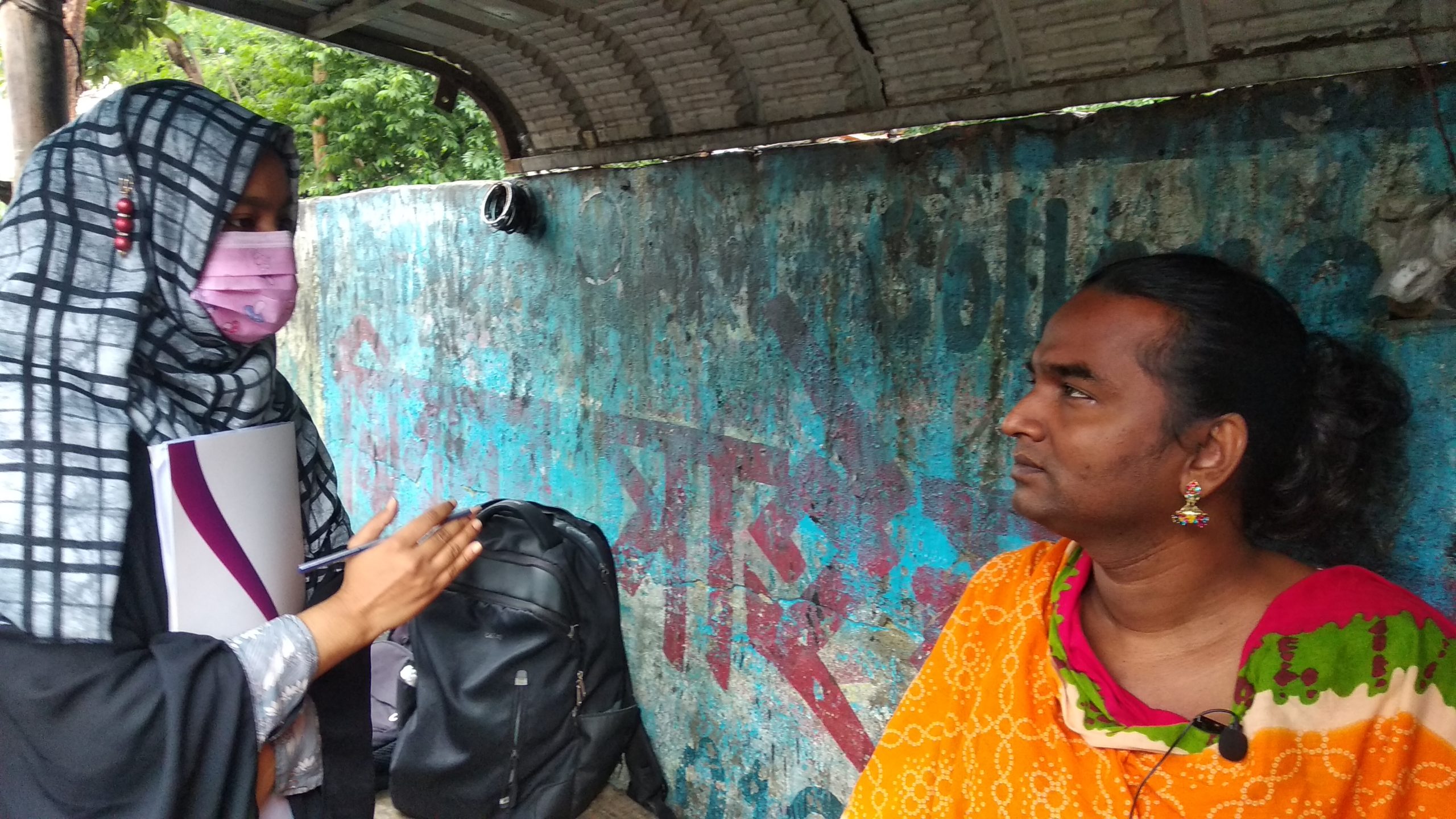
Blog: The Transgender Community and Disparities of the Urban Health Care System. Untold Stories
By Umme Salma Anee, Nondita Hassan, Fariha Islam Munia, Maisha Ahsan Momo, Tahmid Hasan, Deepa Barua and Rumana Huque. ARK Foundation, Bangladesh
A transgender woman, named Sumaiya (pseudonym), became sick while collecting money for a prolonged time under the scorching heat of summer. She went to buy medicine from a road side drug store. While buying medicine, she heard people call out comments, saying, ‘You also get sick!’
The drug sellers often compel transgender women to leave quickly as the other customers scorn or fear them. Facing discrimination in hospitals is also not uncommon. Seventeen -year-old Oishi (pseudonym) went to hospital with high fever. After standing in the queue for a long time, the hospital staff told her to ‘come last’. While seeking treatment for Corona, Maria (pseudonym) was deprived of treatment from a clinic and returned without treatment. She also went to a private hospital in Dhaka with her sick sister. She was denied admittance by the hospital authorities and warned not to create any “trouble” and spread panic among the other patients.
The living of the third gender community, locally known as “Hijra’’ in Dhaka is said to be temporary. According to Department of Social Welfare, there are more than ten thousand members of the third gender community living in Dhaka. Though equal rights for this community have been declared, the reality is different. They are still underprivileged, economically neglected and considered socially unacceptable and an extremely marginalized group, as social prejudice and stigma have left them sidelined in every sphere of life. Consequently, they face numerous barriers when attempting to access primary healthcare.

Photo Credit: ARK Foundation
The real scenario of the quality of their lives has been revealed through various research projects. As a part of the CHORUS research project, we have included some representatives from the third gender community for interviews, along with participants from binary gender identities. CHORUS is a research consortium that brings together the health researchers from Africa, South Asia and the UK. As rapid and uncontrolled urbanization continues across low- and middle-income countries, health systems are struggling to keep up, and the needs of poor urban communities are often not met. This is especially true for those experiencing exclusion due to intersections with gender, caste, ethnicity, religion and disability. The core objective of the CHORUS project is to address these challenges while helping to build resilience in the city’s health system and strengthen urban primary health care to provide primary care for non-communicable diseases, particularly hypertension, diabetes and heart disease among the poor. ARK Foundation is working on the implementation of the project in Bangladesh.
The health seeking behavior of the transgender community has been captured through the qualitative interviews with the transgender section, as a part of the need assessment phase of CHORUS project. The urban poor of Bangladesh seldom visit clinics/ hospitals until they feel the absolute necessity- when they miss a day’s work. In occurrence like that, they seek medicine suggestions from the people nearby (neighbors, friends, families, coworkers). If that doesn’t help, they go to nearby pharmacies/ drugstores to ask for medicine from the seller without any doctor’s consultation. If that also doesn’t work, they go to government hospitals or NGO clinics. If they can afford, they may go to private hospitals, which is highly unlikely. The scenario is more miserable for transgender people as they are the always looked down upon with contempt.
Being excluded from the family and society, members of the transgender community are compelled to live undignified lives with strong negative attitudes from the society. The lack of respect and recognition make them undergo hatred, scorn and negligence, being victims of various types of ridicule and harassment. Social stigma precludes them from participating in education and any economic activities. Finding no other way, they are forced to collect money from people to make a living. They are often seen in various poses on the busy streets of the city collecting money, adorning themselves in various attires, wearing a pair of sandals; being ridiculed or even sometimes become victims of physical abuse. They also face discriminations while seeking health care facilities.

Photo Credit: ARK Foundation
A transgender woman, named Samia (pseudonym), says “If we ever enter a hospital or clinic, the behavior of the doctors, nurses and other staff become very uncomfortable. We are often asked in a harsh, unwelcoming tone to wait saying, ‘Why have you come here’ or ‘come last of all’.
In the capital, Dhaka, the government has made provision of providing health services for everyone (especially for the marginalized population) at a low cost or free of cost through urban primary health care centers under the auspices of the city corporation. But systematic discrimination prevents transgender people visiting public health facilities by their fear of being stigmatized and ridiculed, which puts them at increased health risks. Their poor economic conditions do not allow them to seek healthcare services from the private sector. Since there are barriers for the transgender community to enter the tertiary hospitals in the city, they are bound to go to small pharmacies near their residences to measure hypertension, blood sugar etc.
On November 11, 2013, a cabinet meeting presided over by the Honorable Prime Minister decided to recognize the Hijra community. In 2014, the Ministry of Social Welfare recognized the Hijra community through a gazette notification. This legal recognition is certainly a progressive policy change. But stronger steps and policies are required to ensure their rights to health care. Initiatives from the government and social organizations can play a significant role to remove these barriers and contribute to a more equitable health care system across the country.
Photo credits: ARK Foundation.